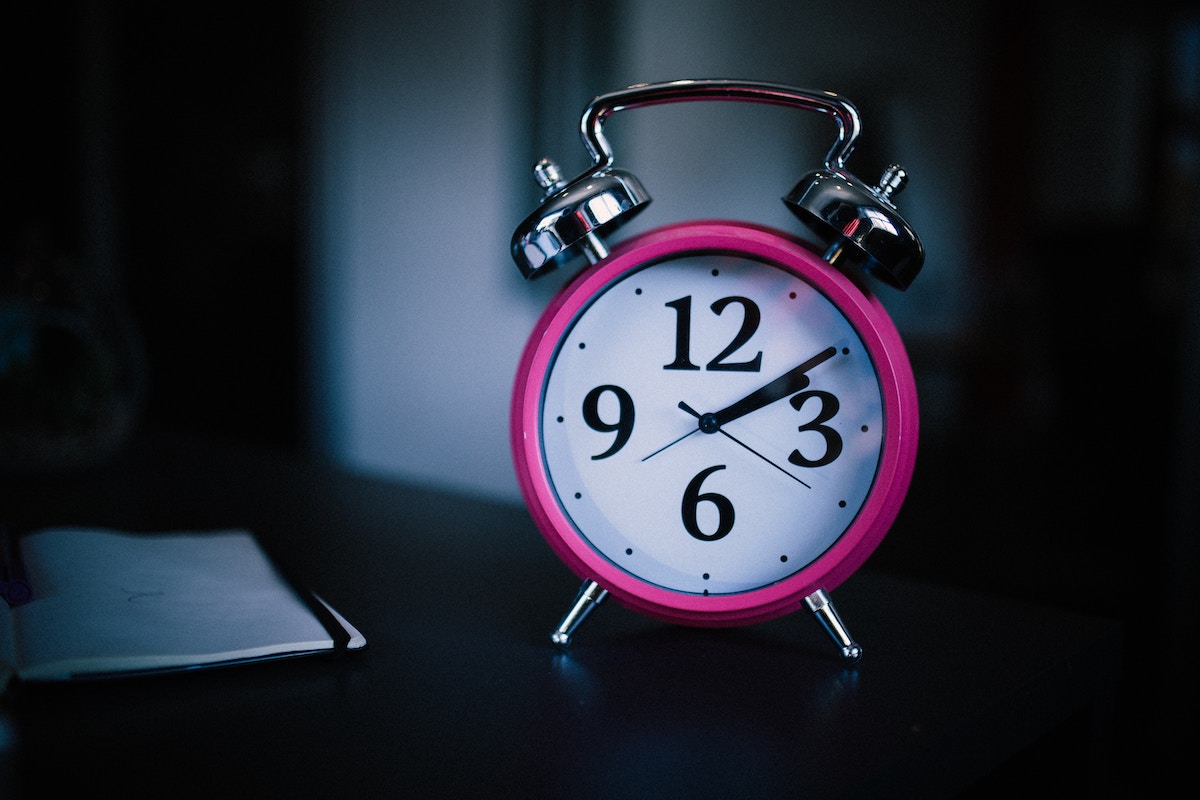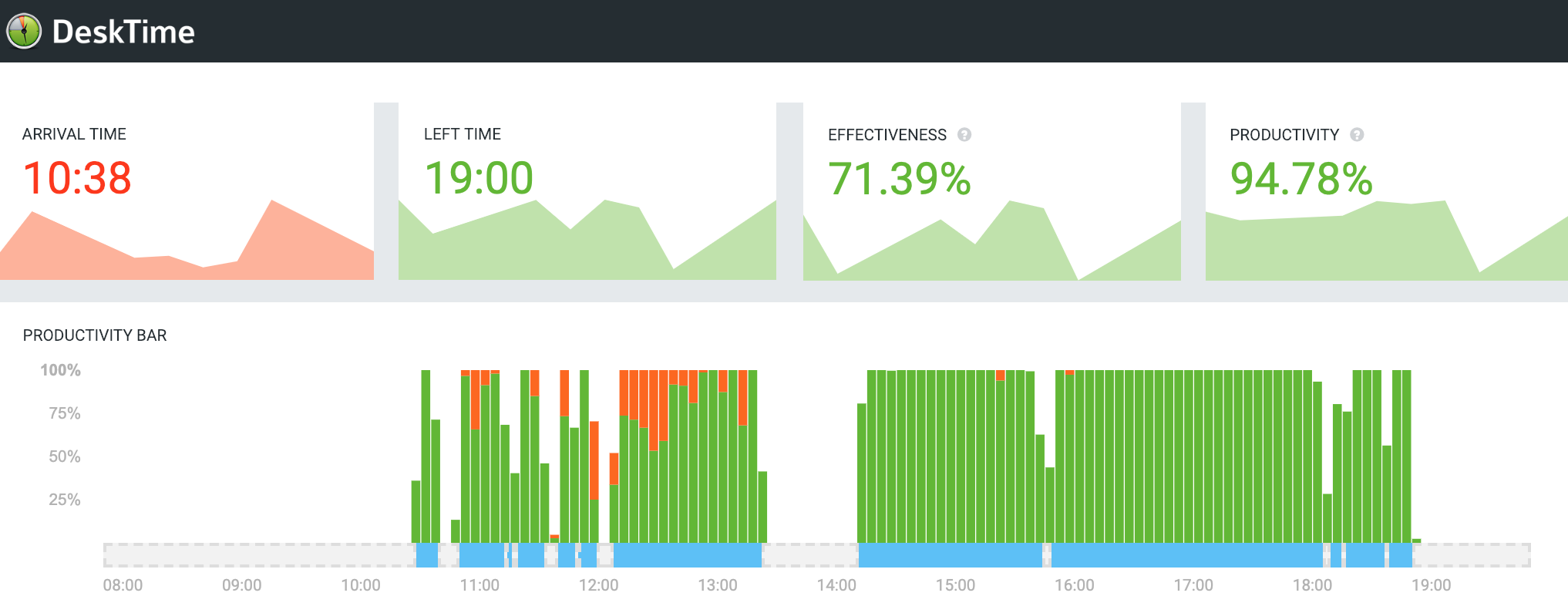I have never been a morning person.
For me, waking up before 9 AM means being tired, unfocused and hopelessly unproductive for the larger part of the day. For that reason, the typical 9 to 5 work schedule has never really worked for me. And I’m far from being the only one.
As much as 37% of people consider themselves as evening people or night owls. These people stay up late, like to sleep in, and are most productive during the second half of the day, starting from 2 PM.
Despite the fact that more than one-third of the population are evening types, society, including many employers, are still holding onto the assumption that people are most productive and efficient in the mornings.
The result?
Companies are losing millions of dollars every year because of sleepy employees who are unable to focus at work. Solution? Flexible working hours that allow employees to adjust their work schedules to their biological clocks.

Giving in to my night owl habits
For many years, I was one of those ”always tired, always sleepy” employees and struggled with morning schedules. That’s until I started to work for a company that offered flexible working hours. For the first time ever, I was allowed to give in to my night owl habits – sleep in, come to the office at 11 AM and work until dark.
Life was good.
When I started my own company, I tried to break myself and become a morning person. In the entrepreneurial world, being a morning person is a trend. It’s the key to success.
Just look at Steve Jobs, Elon Musk and Richard Branson – all early birds with productive morning routines. But despite the inspiring success stories, that didn’t work for me.
I came to work early and suffered through the first part of the day. Then, at around 3 PM I finally felt awake and worked until dark. I wasn’t being more productive. I didn’t get more things done. I had simply spent more unproductive hours at work. After a couple of months and my co-founder’s encouragement, I gave up.

The benefits of being an evening person
For the last years, my morning schedule looks like this:
I sleep until 9:30 AM, then I take a shower, make my morning tea and, slowly sipping it, check my inbox. At 10:30 AM I leave my apartment and arrive in the office at 11 AM – awake, rested and energized.
It’s like Sunday morning every day.
Needless to say, I really love being an evening person. And there’s more to it – here are four other advantages of being a late riser:
1: I don’t need an alarm clock to wake up
While my alarm clock is always on (just in case), most mornings I never get to hear it, as I usually wake up by myself before it rings.
As others’ experience shows, anyone can train themselves to wake up without an alarm clock – what you have to do is, stick to a routine and go to bed and wake up at the same time every day.
When it comes to me, I prefer to rely on my inner clock. That is, I go to bed when I feel tired (usually around midnight) and wake up when my body feels it has received the amount of rest it needs (usually between 9:20 and 9:30 AM).
2: I’ve cut down my coffee consumption
I used to be a caffeine addict. When working 9 to 5, I could easily drink up to six cups of coffee a day, the first four in the morning. The problem was, such amounts of caffeine intake didn’t help my productivity; it was rather a coping mechanism to keep my eyes open.

After fully switching to an evening schedule, I can easily go days without a single cup of coffee. Avoiding caffeine helps me prevent energy slumps throughout the day, as well as stay sharp and focused for longer hours than some of my early-rising workmates.
If a caffeine boost is absolutely necessary, I opt for edible coffee, which has been proven to be 11.6% more efficient when it comes to productivity.
3: I spend less time commuting
Some people go to work at 6 AM to avoid traffic jams. I skip them by coming to work at 11 AM and leaving at 7 PM – just after the peak hours. Such a schedule has helped me reduce the time spent commuting by nearly 2x and save hours of my time every month.
The best part?
Finishing work at 7 PM, I don’t feel I’m missing out on anything. I still get to meet friends, spend time with my family, attend events and go to the gym – just like people coming to work and leaving the office hours before me.
4: I enjoy hours of uninterrupted productivity
Working in an open-plan office can be a challenge – you may know that yourself, as today, nearly 75% of offices in the USA are designed with an open-desk plan. Interruptions and distractions are inevitable, and productivity suffers.
My highest productivity is between 4 and 7 PM, which is also the time most of my colleagues clock out. Left alone in the office and with my productivity level at it highest, I am finally able to indulge in tasks that require concentration.

There’s more:
I can work without interruptions as long as I’m in the flow. That can be three hours or that can be six, as opposed to early birds who come to work before others – their flow gets inevitably disrupted when the office starts to fill up.
Final words
The society favours early risers who are seen as more productive, hardworking and successful, while night owls – lazy and less ambitious. But that’s a misconception.
Need proof?
Just look at Winston Churchill and the former president of the USA Barack Obama – both highly successful, ambitious and night owls. Other famous evening people include Prince, Christina Aguilera, Aaron Levie, just to name a few.
I guess, what I’m saying is:
Sometimes, you don’t have to give into a trend. Like turning yourself into a morning person when you 100% are not.


